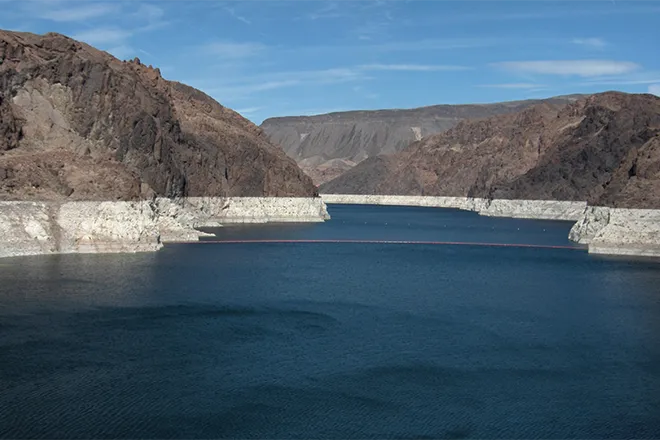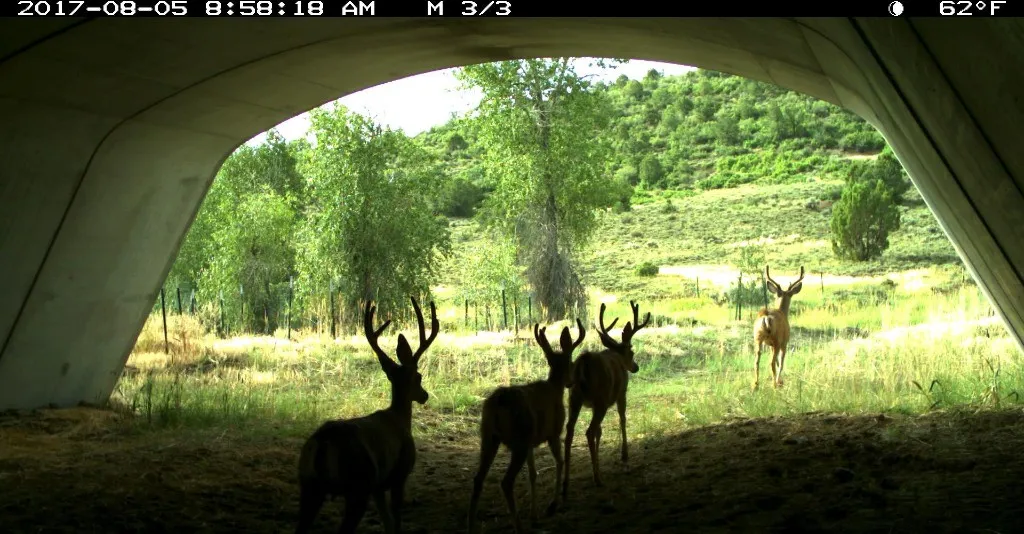
Daily Audio Newscast - April 19, 2024
News from around the nation.
Tribal advocates keep up legal pressure for fair political maps; 12-member jury sworn in for Trump's historic criminal trial; Healthcare decision planning important for CT residents; Debt dilemma poll: Hoosiers wrestle with college costs.
TRANSCRIPT
[MUSIC] The Public News Service DOA newscast, April the 19th, 2024.
I'm Mike Clifford.
[MUSIC] Across the U.S., most political boundaries tied to the 2020 Census have been in place for a while.
But a national project on map fairness for Indigenous populations continues to fight for changes.
When states did their redistricting a few years ago, the Native American Rights Fund launched its Fair Districting in Indian County effort.
It provides resources and legal representation to tribal communities worried about newly drawn districts that could suppress their voting power.
NARF staff attorney Michael Carter says there's been a lot of activity.
Just from this redistricting cycle alone, tribes have stepped up and decided that what the state and county governments are doing is not right.
He points to several cases with various levels of success, including two high-profile ones from North Dakota.
I'm Mike Moen.
A group of Republican attorneys general contends that private groups and individuals do not have a right to file lawsuits under Section 2, but Carter says there's a separate provision used in North Dakota that does provide that opportunity.
And all 12 jurors, plus an alternate, were selected this week to serve on the jury in former President Donald Trump's trial in New York.
After they made it clear to both sides they could render a fair and impartial verdict.
That from NBC News.
They report a lawyer, a banker, a speech therapist are among the 12 jury members seated.
Meantime, CNN reports Judge Mershon said the court will resume Friday morning.
Jury selection is expected to continue until the remaining alternates are seated.
The judge also said he's aiming to hold a Sandoval hearing, where he can be asked if previous bad acts can be brought up by the prosecution for the trial.
And with Alzheimer's cases on the rise in states like Connecticut, experts say people should consider early health care planning.
A new report shows around 77,000 of Connecticut's 65 and older residents were diagnosed with Alzheimer's in 2020.
This is below other estimates, but Jessica Mpeño with Compassionate Choices says understanding a person's care wishes is a good first step.
She adds it's not just about the big things, but the little ones too.
Being able to wake up and look out the window and have my coffee and my favorite mug every morning is what's important to me, right?
It can start with those little things that help people understand who you are and what you hope for in your final phase of life.
Compassionate Choices' dementia values and priorities tool is online.
It helps people document their health care wishes before developing dementia or an illness affecting their decision-making abilities.
Mpeño thinks people should update their plans every five to ten years rather than creating them just once.
I'm Edwin J. Vieira.
A common mistake in health care planning is completing an advanced directive but not telling anyone about it.
This is Public News Service.
A new Gallup and Lumina Foundation poll unveils a concerning reality that Hoosiers may lack clarity about the true costs of their higher education.
The survey reveals that nearly 23 percent of U.S. adults without college degrees could estimate the annual net cost of a bachelor's degree from a public college within $5,000 of the actual expense.
The repercussions of the financial fog are overwhelming for students like Gabriela Espinosa, a 27-year-old nursing student at IUPUI in Indianapolis.
She says looming debt from school cast a shadow over her future.
I'm trying to figure out what my debt is going to look like and how long it's going to take me to pay off.
I'm luckily in a position right now where I live at home with mom and she's been helping me out.
You know, eventually I'd like to think about moving out, moving on my own. 75 percent of those polled believe a bachelor's degree is extremely or very valuable.
However, cost is a major deterrent for many who wish to get a degree.
I'm Joe Olare, Public News Service.
And an annual march for farmworkers' rights is being held Sunday in Northwest Washington.
More now from our Eric Tiganoff.
This year marchers are focusing on the conditions for local tulip and daffodil workers.
Alfredo Juarez with the farmworkers' rights organization Community to Community Development says tulip and daffodil harvesters are raising concerns about pay, pesticide use near where they're working, and the need for clean restrooms.
He says the march coincides with the Skagit Valley Tulip Festival.
During the tourist season when you show up here you see all the beautiful flowers of different colors, design, but the work that goes into making all that happen is done by the workers and people that you don't really see, you just see the flowers.
The Skagit Valley Tulip Festival is the largest tulip festival in the country and draws a million visitors annually.
Finally, from Roz Brown, balancing the needs of the many with those who have traditionally reaped benefits from public lands is behind a new rule issued Thursday by the Bureau of Land Management.
A quarter of a million acres of public lands, including 13 million in New Mexico, now fall under the public lands rule.
The BLM is charged with managing multiple uses, but has historically prioritized extraction, such as oil and gas drilling, along with cattle grazing, over conservation and outdoor recreation.
The New Mexico Wildlife Federation's Jesse Dubelle believes the new rule is more fair-minded.
I really feel like this new rule doesn't minimize those other things, those other uses are still going to be allowed to continue, but now decisions are going to be made with conservation in the forefront, and of course conservation, by definition, is the wise use of our natural resources.
I'm Roz Brown.
This is Mike Clifford and thank you for wrapping up your week with Public News Service, member and listener supported.
You can hear us on great radio stations, your favorite podcast platform, and you can always find our trust indicators at publicnewsservice.org. [end]

















